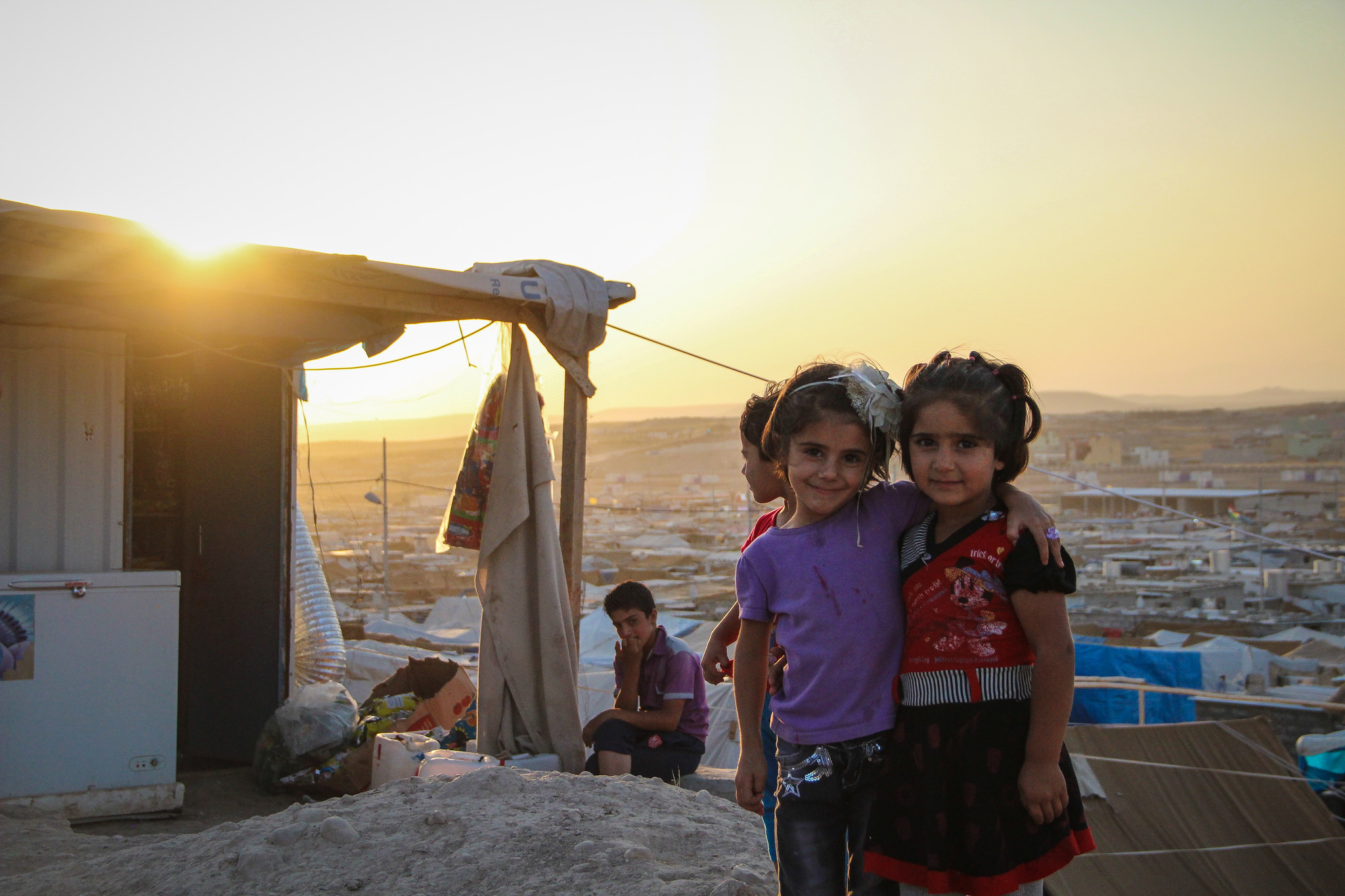This article originally appeared at World Magazine online column, by Mindy Belz, Feb 19, 2016.
Sometimes it seems the news from Iraq and Syria can’t get any worse. And then it does. But the bad news shouldn’t overwhelm surprising good news, which is part of the better story we know God is writing.
For a better understanding of life in the cities under ISIS control, see the special cities story in World Magazine’s Feb issue. And for an indelible portrait of how desperate some Syrians are to flee the living hells of life in those cities, consider the story of a family of 12 who escaped a few weeks ago from the Syrian city of Raqqa, the self-proclaimed capital of the Islamic State.
Ibrahim, 48, and his wife Turkiye, 45, stowed away in a cattle truck with their 10 children on Jan. 30. They paid a smuggler $159 to transport them, evading the checkpoints leading out of the city, once a diverse home to 220,000 Muslims, Christians, Kurds, Turkmen, and others. If they had been caught, they would’ve been killed.
Ibrahim said life in Raqqa had become impossible. ISIS imposed higher and higher taxes and exacted grotesque penalties for petty crimes. Men caught smoking, Ibrahim said, had their index and middle fingers cut off. Stonings and beheadings had become the norm.But leaving town in a crowded truck was just the beginning for Ibrahim’s family. Using darkness as a cover, they walked for 10 days most of the way to the Lebanon border—189 miles.
Syria’s five-year war is exacting a terrible toll on families.
The death toll stands at 470,000, almost twice the number cited 18 months ago. In Iraq more than 19,000 civilians have been killed in under two years of fighting ISIS.
Christians continue to suffer disproportionately. For 20 months now, at least two-thirds of the Christians who remain in Iraq are displaced from their homes, living in Iraqi Kurdistan after being chased from the city of Mosul and the villages and towns of Nineveh Plains.
Now we are learning of new threats to Christians in the Iraqi capital, Baghdad, this time not from ISIS but from Shia militias backed by Iran (and allied with the Iraqi government). The militias have used Iraqi officials to falsify documents, confiscating Christian property. No churches have been taken so far, Chaldean Patriarch Louis Sako told me by email, but homes, land, and businesses owned by Christians in some of the city’s most valuable neighborhoods have been seized. Sako and others have appealed to the government but so far have received no response.
Each new encroachment—especially in the face of little to no international pushback—is a setback from which Christians who have lived in the region for more than a millennium may never recover.
And all the while, the terrible toll of abuse, rape, and mutilation continues for those living under ISIS control.
Where in this tableau can we find good news? Sometimes we forget that God’s power “is made perfect in weakness.” Alongside the displaced Christians in northern Iraq and Syria are thousands and thousands of Yazidi and Muslim families who also suffer. For months now Christians have been working among all three groups. Over and over again I hear from those workers, as one recently told me by email:
“Long-term Christian workers in Iraq say there is an openness to the gospel like they have never seen before.”
Another worker told me of visiting a Kurdish village housing 150 displaced families, mostly Yazidis who traditionally isolate themselves from Christians and Muslims. They no longer have that luxury. Many of the Yazidi women attended a lunch put on by a local church organization. “We came because we want to have your heart and mind,” one of the Yazidi women said.
“Your Jesus is the only Savior that we know.”
The Apostle Paul in 2 Corinthians 12 could not stop boasting of the miracles taking place in desperate times. May we look past sour headlines to see the miracles happening in these desperate times, too.

